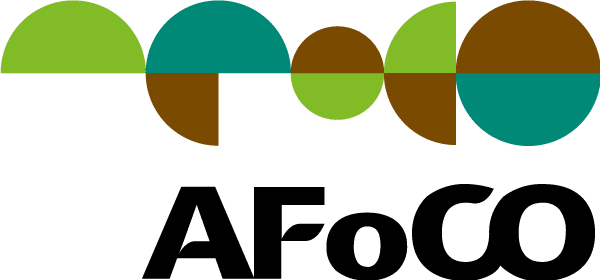On 18 May, AFoCO organized an official side event of the 2021 P4G Seoul Summit entitled “Forest-based Solution- a Green Path to Building Back Better.” The event attracted more than 100 participants.
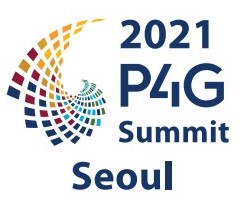
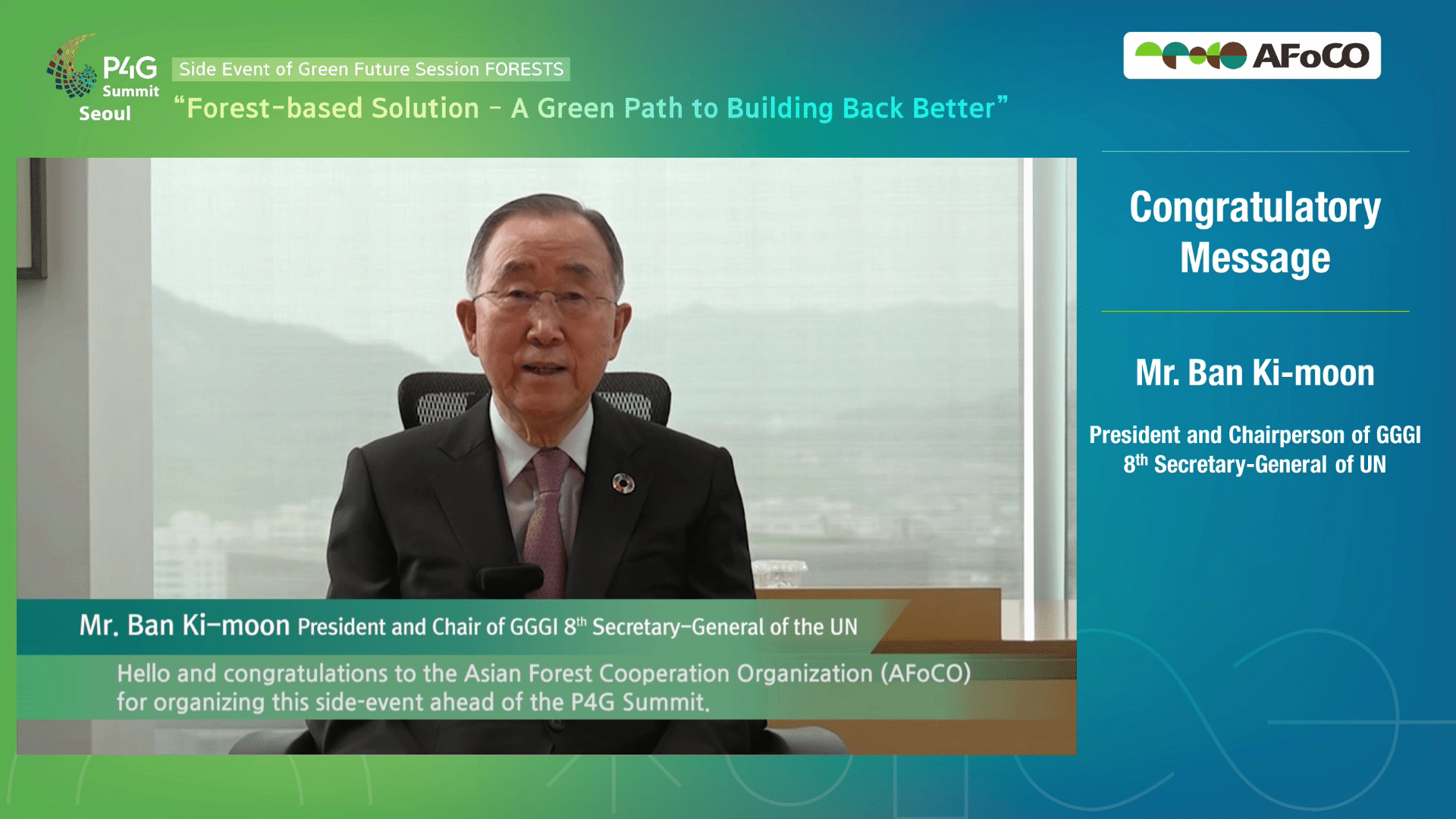
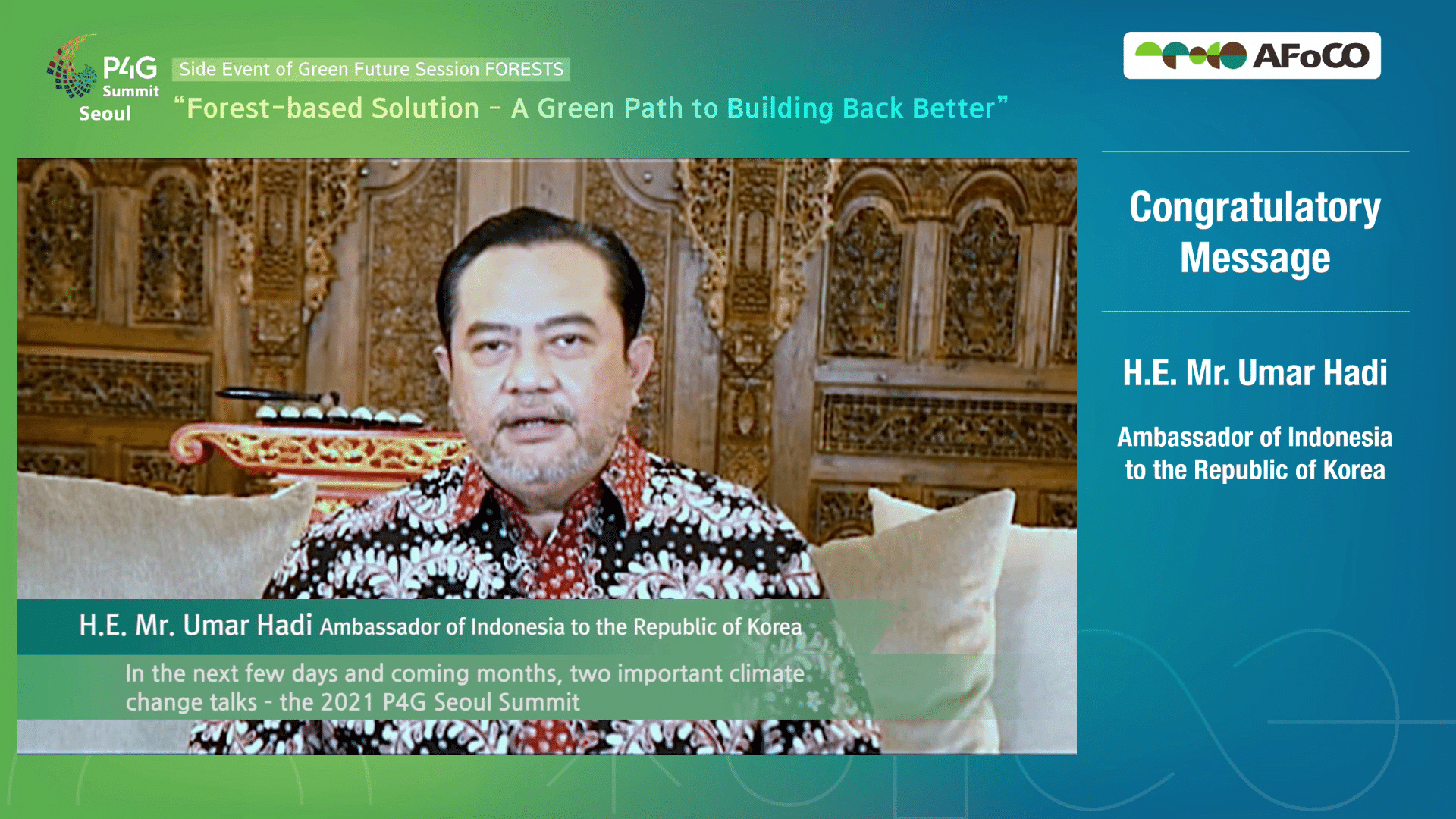
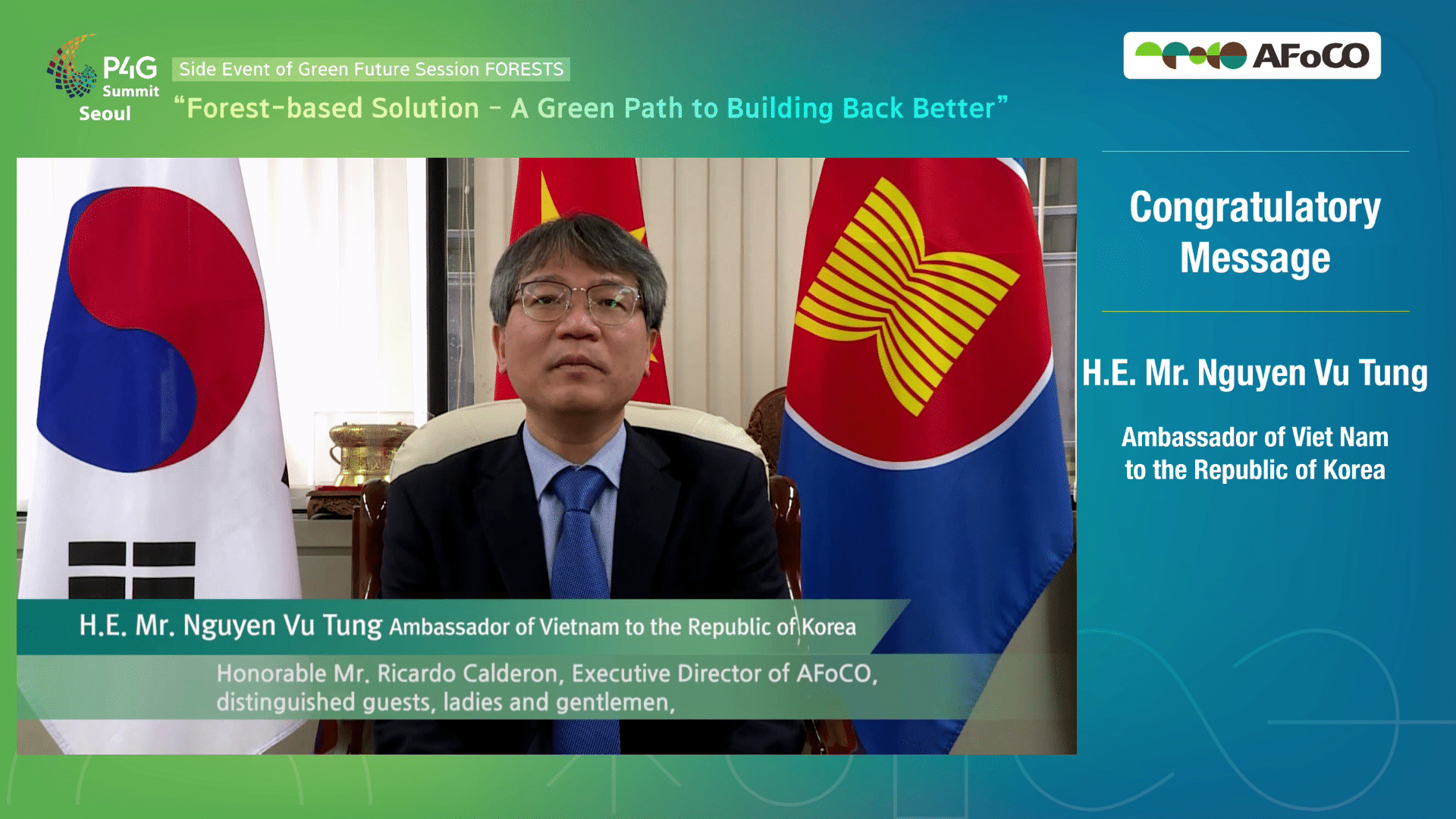
Through video message, Mr. Ban Ki-moon, President and Chair of the Global Green Growth Institute (GGGI) / 8th Secretary-General of the UN, extended warm congratulations and encouragement for the works of AFoCO. Ambassadors of Indonesia and Viet Nam, being members of both P4G and AFoCO delivered their congratulatory messages at the event.
Through his keynote speech, Dr. Dennis Garrity, UNCCD Drylands Ambassador, extended optimistic views and opportunities where “forests” can contribute substantially to the climate crisis as a nature-based solution.
AFoCO with its partners explored the role of forests in contributing to the global net-zero emission ambition through a panel discussion and provide an opportunity for state and private sector leaders to better understand the mitigation potential of the global forests and promote investments in the forest sector.
Ms. Lee Mira, Director General of the Forest Policy Bureau of the Korea Forest Service share the newly launched carbon neutrality policy in Korea and highlighted that public participation will be the key in achieving the goals.
Mr. Heru Prasetyo, Chairperson of the Indonesia Business Links, delivered perspectives from the private sector. He emphasized the there is “no silver bullet for green recovery particularly on conservation and restoration businesses, there is a need for clarity on carbon and ecosystems services and valuation and governance, balancing national and global needs for emission reduction credits.” There is a need to incorporate externalities on nature, human and social capital vs. revenue in order to ensure sustainability.
Mr. Maurice Andres Rawlins, Senior Environmentalist of the World Bank Group noted that promoting inclusive recovery from covid 19 needs for a sustained, differentiated, and targeted financial and technical support for an adequate policy response, strong coordination across bilateral and multilateral organizations including AFoCO and further support to the private sector.
Dr. Delia Catacutan, Senior Scientist and Regional Coordinator Southeast Asia Program of the World Agroforestry (CIFOR-ICRAF) delivered that to enhance private-public partnership and investments, finance rules, procedures and requirements has to find a good balance of safeguards and simplicity. It also requires government pro-restoration policies and a well-defined natural accounting policy and sustained fiscal investments.25
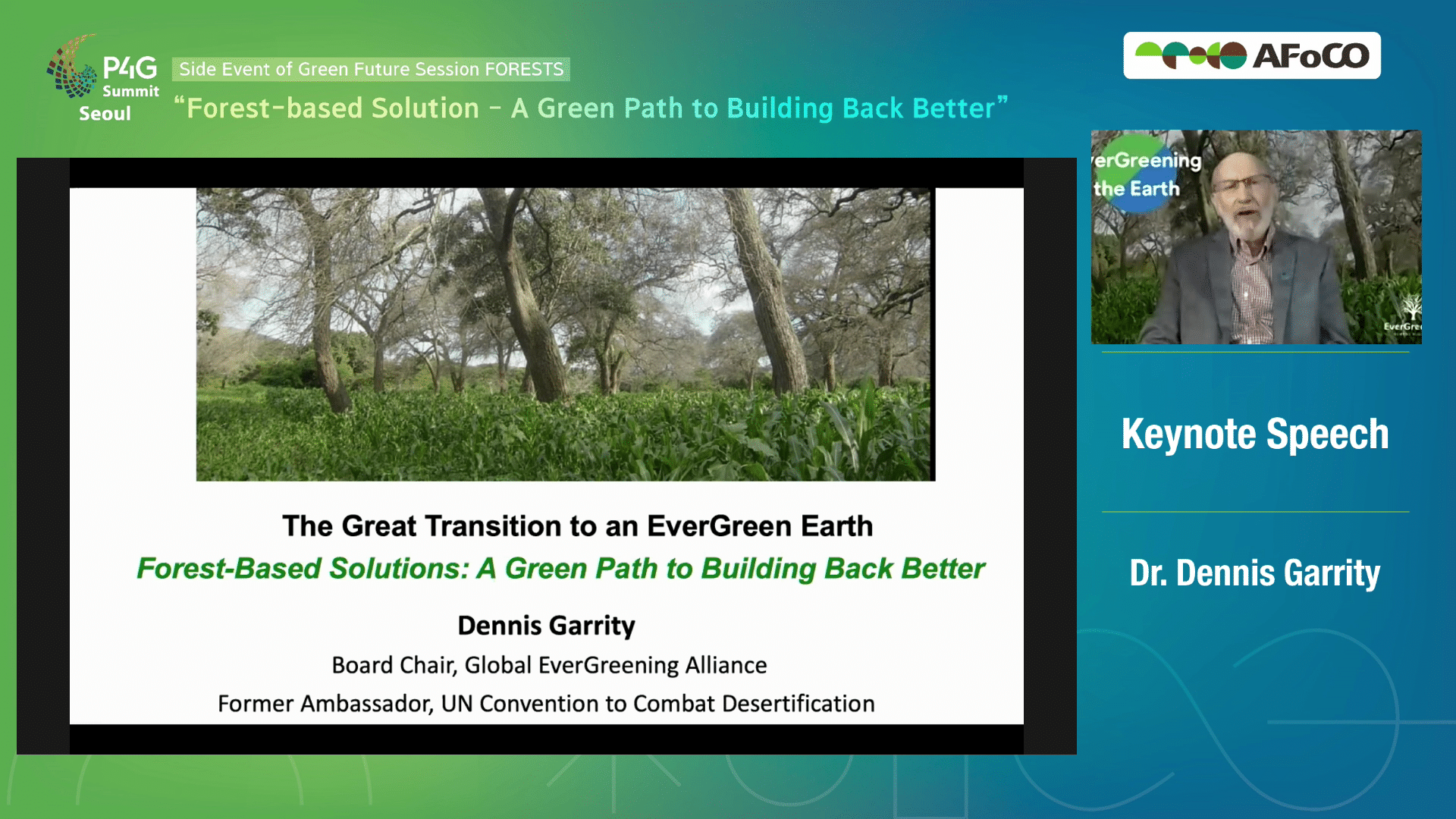
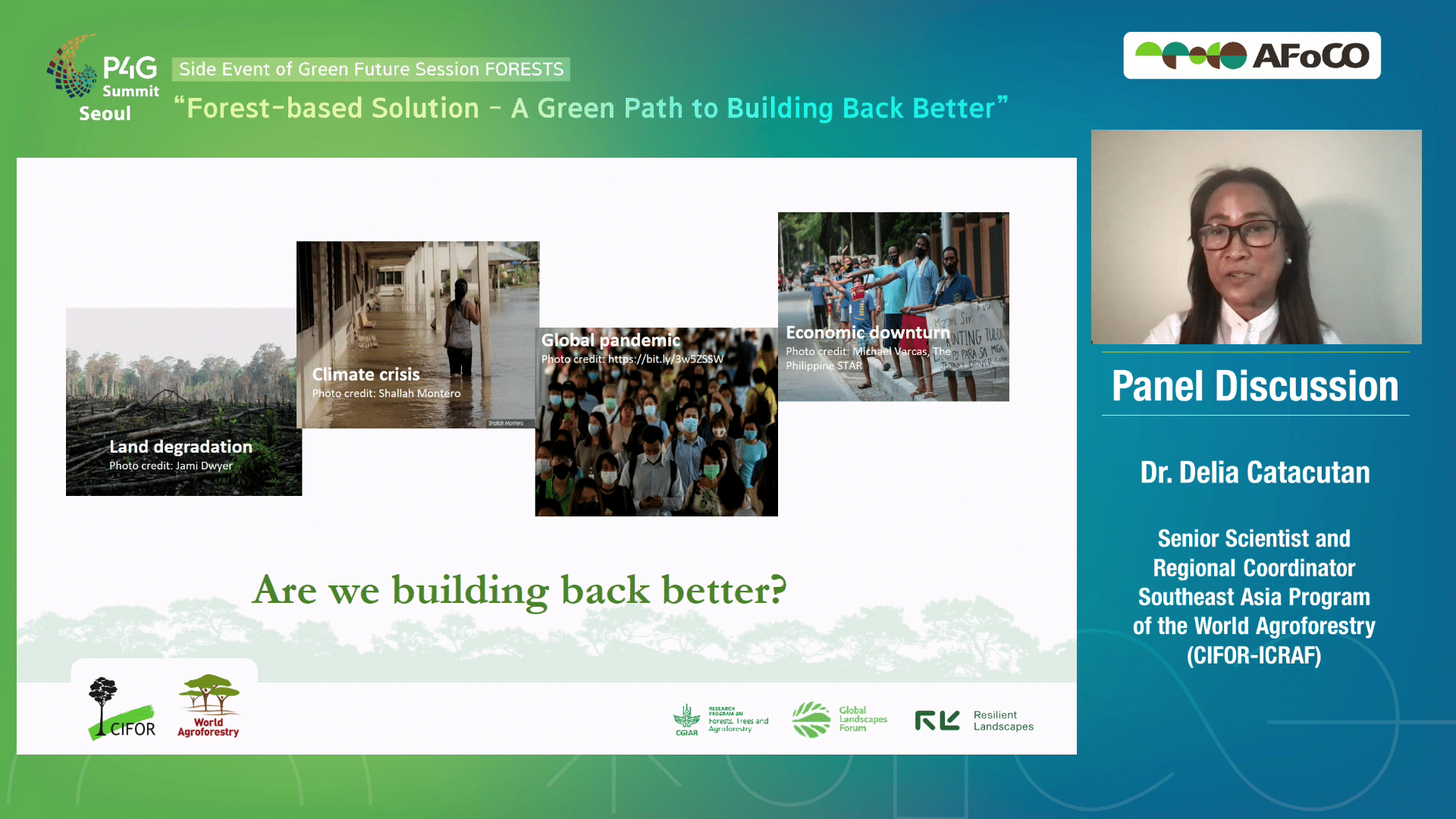
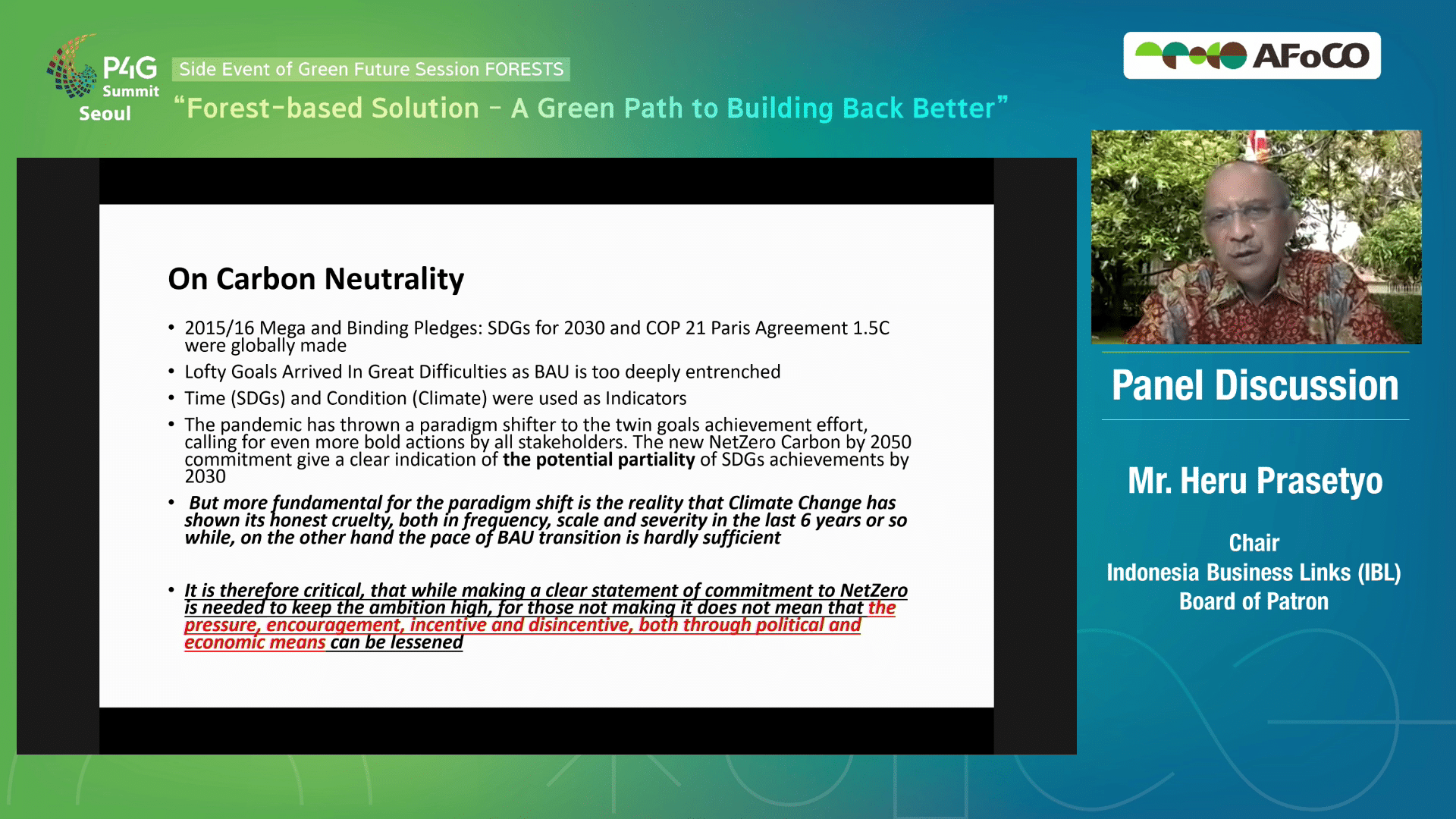
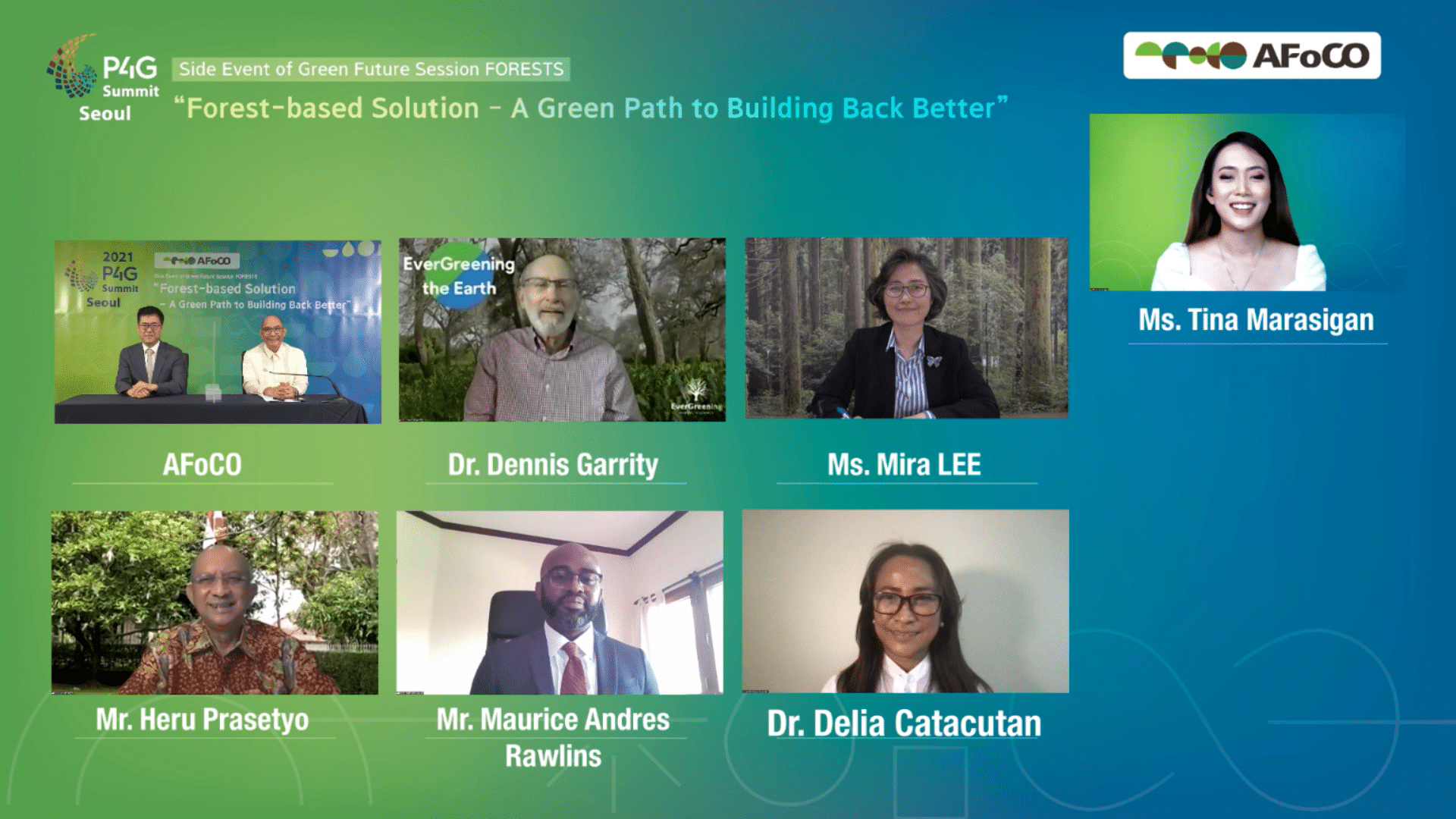
The Side Event soft-launched the Landscape Partnership Asia Program with its founding partners, Asian Forest Cooperation Organization (AFoCO), Center for International Forestry Research and World Agroforestry (together: CIFOR-ICRAF), and Global EverGreening Alliance (GEA). Mr. Jin Sunpil, Vice Executive Director opened the soft launch, which also kickstarted a series of events and workshops before the grand launch of the LPA slated at the coming XV World Forestry Congress to be held in 2022. Starting off with a video introduction of the LPA, Dr. Robert Nasi, Managing Director of CIFOR-ICRAF and Ms. Maaike Slotema of Global EverGreening Alliance had a high-spirited discourse on the challenges of restoring drylands restoration as well as the opportunities that the LPA will be capitalizing on.
Mr. Chris Armitage, CEO of the Global EverGreening Alliance called for support for the LPA. The LPA website was also launched at the event.
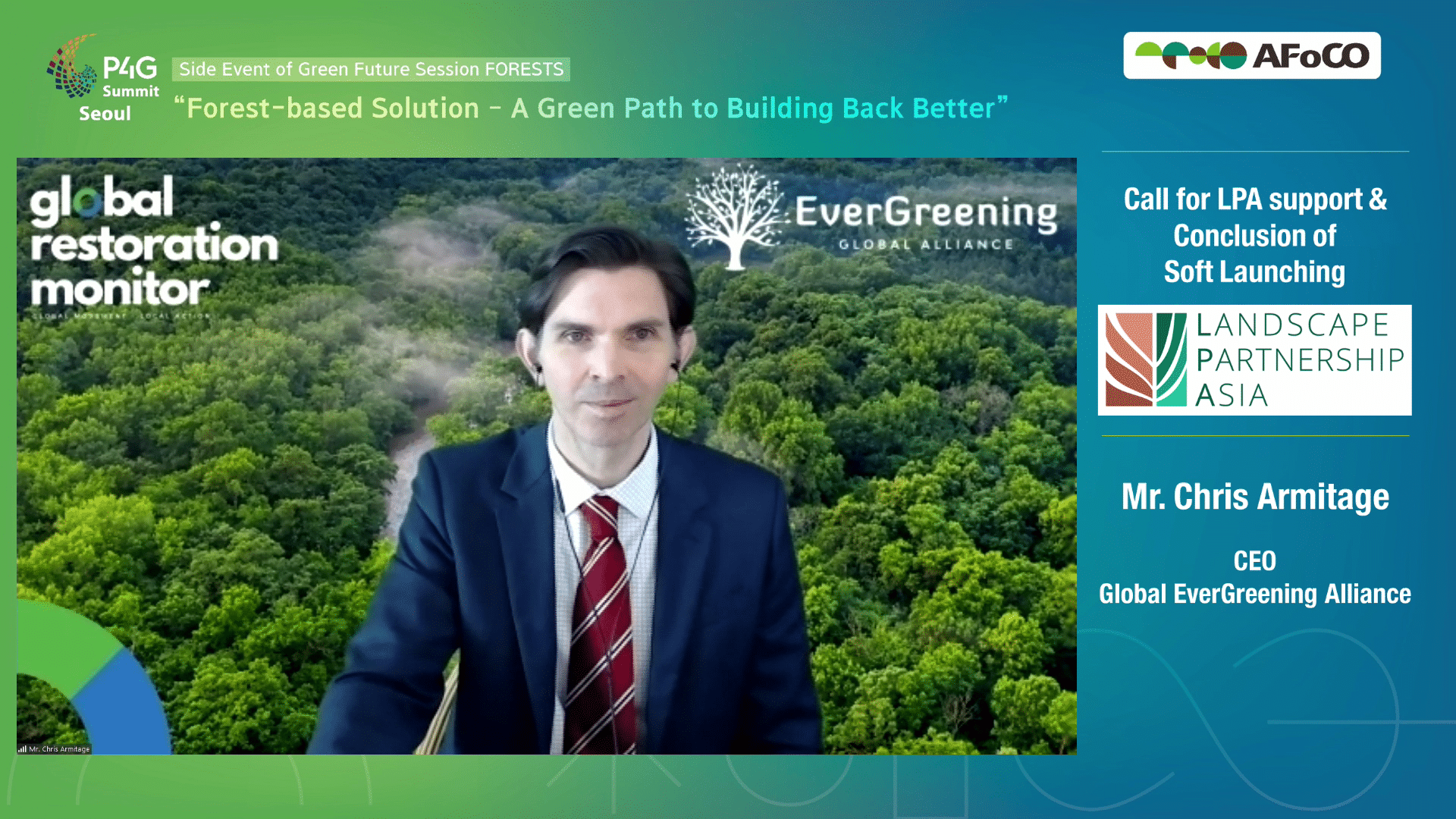
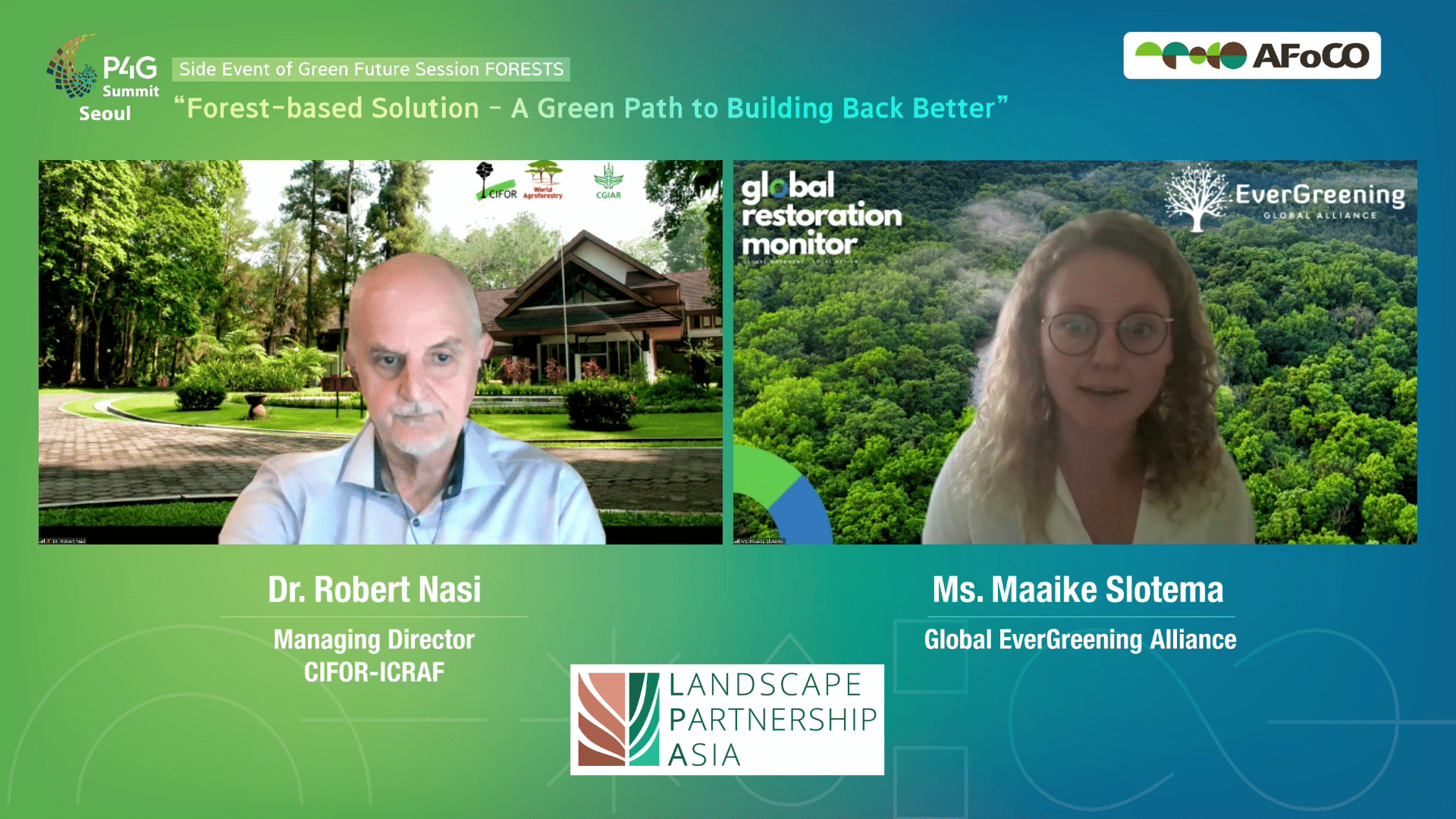
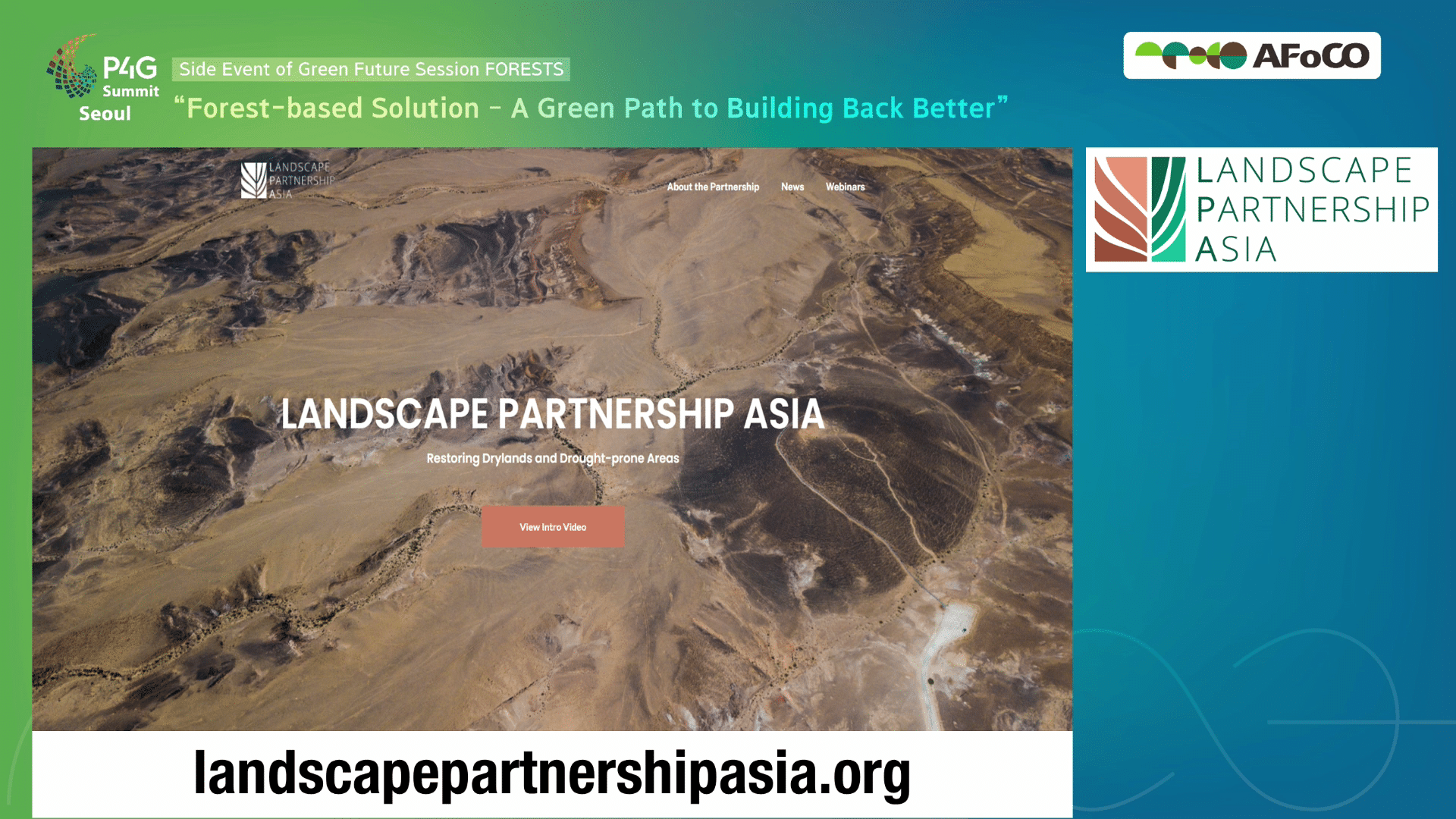
THEME OF THE 2021 P4G SEOUL SUMMIT
“Inclusive Green Recovery towards Carbon Neutrality“
Inclusive: As we face the daunting task of overcoming COVID-19 and the economic crisis, it is important to make sure that we do not leave anyone or any country behind in our recovery efforts.
Green Recovery: COVID-19 has ironically brought us the opportunity to build back better and greener. Greening our recovery measures will be an important starting point to not only rebuild our economy but also to provide a strong foundation for longer term climate policies and actions.
Carbon Neutrality: In line with the recommendations of IPCC as well as the goals set under the Paris Agreement, achieving Carbon Neutrality by 2050 will be important to overcome the climate crisis. 2050 Carbon Neutrality is an ambitious target that needs still more political commitments around the globe.
https://p4gpartnerships.org/
https://2021p4g-seoulsummit.kr/

